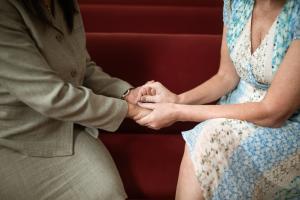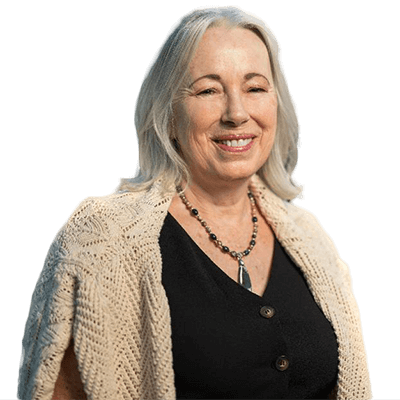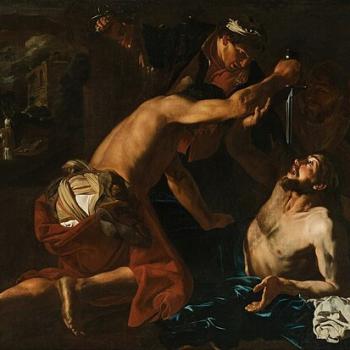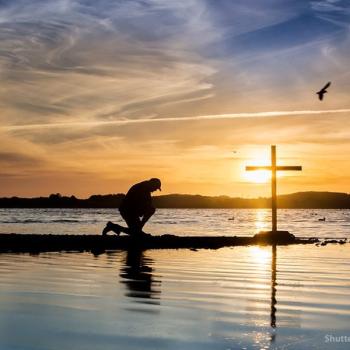
There was no choice but for me to learn how to forgive. Life was just way too overwhelming and unbearable otherwise. Instead of thriving in life, I often found it took everything in me to endure. I could not understand what happened with my children, my marriage, subsequent divorce, and the losses endured.
As an incredibly sensitive child from the get-go, my pre-teen and teenage years had turbulent upheavals, leaving me indelible impressions. When I think back to my fifteen-year-old self, I want to give myself a big hug. Even at that tender age, I felt worn out by life more than anything else.
Life seemed more often than not full of suffering. I arrived at that conclusion because I experienced four significant deaths over five years. The culminating effect of those deaths led me to the point of not being sure I wanted to live.
The first significant death occurred when my grandmother died when I was eleven years old. I loved her more than anyone else in the world. Cancer was the illness that caused her a lot of suffering. I struggled mightily with how a loving God would allow such suffering to occur. I even tried bargaining with God to let me take on the suffering to relieve my grandma from pain.
After all, in the Gospel of Mark, it is written, “I tell you, you can pray for anything, and if you believe that you’ve received it, it will be yours.” What I had believed, what I had requested in prayer, did not come to pass. My grandma died, and the ground under my feet collapsed. How could I live without her and her love?
When I was fourteen years old, my grade school boyfriend accidentally drowned in an attempt to save his friend who had fallen through the ice on Lake Erie. The friend lived; however, my boyfriend died. It happened in January when the lake wasn’t solidly frozen over.
I had heard from a girlfriend that Frank had jumped into the cold lake to save his friend. Rescue attempts were being made to find Frank. I beseeched God crying with the most fervent prayers that the rescue crew would find Frank, and he would be alright. All the tears and prayers seemingly unanswered for Frank had disappeared under the ice. His body was found a couple of months later.
The futile hope that I had carried that Frank was somehow still alive was completely extinguished. His family, neighborhood, our school and church community mourned Frank. Everyone claimed him, rightfully so, a hero. What I claimed was a shattered faith in God. God did not answer my prayers in my hour of greatest need. God had abandoned me.
Later that same year, the high school I attended was shocked by the murder of the school’s student council president, Amy. Everyone loved her: her classmates, her teachers, really everyone who met her knew she was warm-hearted, intelligent, faith-filled and pretty. In her senior year, Amy looked towards a future held with bright promise. Success in life was all but guaranteed.
Amy had it all until the sudden, senseless violent act that took her life. Her murder taught me once again how death could come at any moment, and the world gets turned upside down. I no longer relied on God the way I used to, yet I found myself asking, once again, how a loving God could allow such an injustice to take place?
Two years later, I was shocked to learn of the suicide of a co-worker. John was a sweet, shy teenager who was overweight and struggled with low self-esteem. We would often have heart-to-heart talks together. I took on the role of trying to be his cheerleader to encourage and support him. In the summer, I went away on a family vacation and was shocked to hear from my boss of John’s suicide upon my return to work.
In my grief for John and what he had done, I blamed myself for failing to recognize the depths of his depression. I blamed myself for not finding the right words that could have made a difference. Words that might have impacted John enough to make him want to live.
An undercurrent of depression stayed with me. Unfortunately, despite having many friends, I didn’t feel I could share my burdens. Eventually, a turning point arrived on July 23, 1970. Misery enveloped me. My thoughts were turning darker as I began to question my life’s purpose and whether I could continue on.
On this particular evening, I turned to God to express my anger, disappointment and my anguish. I asked God to free me from the stomped-down anger I carried within. The anger that had hardened my heart. Anger cemented long ago in place by resentments, guilt, shame.
What came first? The surrendering to God or forgiving God? I cannot recall. However, I felt with certainty that God’s grace touched me. From then, I no longer felt the crisis of the night of the soul. I felt God failed to hear my prayers in the past since the outcomes I wanted weren’t delivered. As I forgave God, I believed my lamentations and protests were heard.
Forgiveness was like a life raft that I used to help keep me afloat and alive. A favorite quote of mine by author Cheryl Strayed is, “Acceptance is a still, quiet room.” There’s no way I could have found my way to the “still, quiet room” of acceptance without forgiveness. To sit in the spaciousness of that stillness and accept whatever happens, I found I needed to keep on forgiving.
Whenever I invoked forgiveness, it was transformative. I freed my heart from what weighed it down. I felt lighter, no longer chained to resentments and hurts. Forgiveness liberated what enslaved me, whether it was my own unwise choices I had to forgive or hurts caused by others.
Forgiving God wasn’t ever taught in my twelve years of Catholic education. Confession, a sacrament in the Church, was taught. We were shown how to examine conscience, relay one’s sins to the priest to be forgiven by God, and complete the penance the priest gave to make sure the slate of sin was fully cleared.
It might seem sacrilegious to think I needed to forgive God, but I guess I am not the first person who channeled outrage towards God. Forgiving God helped me begin a new relationship with myself and life and renewed my faith in God. All good preparation for what would happen later in my life.
In my early twenties, I married, miscarried and finally gave birth to a beautiful baby boy. There was much I still had to learn about myself except for the one constant I knew with certainty…my burning desire to be a mother. Two more children followed with another miscarriage in-between. My motherhood longings were fulfilled, and I felt blessed.
My oldest son Sean, who achieved by appearance and developmental milestones, seemed typical until he began to have seizures before his first birthday. The why of what brought on the seizures was a mystery. For many years, I continuously searched for the magic formula that could prevent Sean from having seizures. No matter what medications we tried, no matter what interventions were attempted, my son never became seizure-free for any length of time.
Dramatic seizures and constant little seizures eventually severely impacted Sean’s development. More challenging issues arose. At some point, I went to seek the counsel of a priest to ask him if God was angry with me. Maybe I was being punished for bad behavior? Is this why my son was handicapped?
It was only a few years earlier. I had forgiven God for outcomes that were not at all acceptable to my way of thinking. I thought I had let go of transactional prayers along with forgiving God. The kind of prayer where I would promise God my faithfulness and selfless acts, and God would grant me the favor I wanted. Or the bargaining prayers…if I do this, then will You do this for me, God?
I guess I hadn’t really evolved enough in my faith if I still continued to see God as a punisher. As I poured my heart out to the priest, I asked him to explain why it is my son suffers. Why can’t God spare my son from having a debilitating condition? Of course, there weren’t any easy answers other than the priest reassuring me I wasn’t being punished. None of Sean’s challenges was my fault.
As the years went by, Sean’s handicaps became more evident. At some point, society deemed handicapped to be an offensive word. Handi-abled became more politically correct. I agreed and understood the concept. But more importantly, I felt this truth within my heart.
What was true was Sean’s functioning was impacted, but I chose not to see him as impaired. If I saw Sean only as restricted, then I was the one who was handicapped. I would offend God if I lost sight of all the ways I had to be grateful for my son just as he was.
It would be my own disability if I failed to see all that Sean was teaching me. My son, my master teacher on unconditional love, eventually taught me how to forgive truly. Forgiveness was one of those life-long learning lessons that I needed to address repeatedly.
Through Sean’s example, I saw what forgiveness looked like. I drove Sean over to see his father, my ex-husband, one day. It had been years since they had seen each other. As soon as Sean’s Dad walked out the door to approach our car, Sean became overjoyed. He was shaking with happiness.
Once out of the car, Sean lovingly embraced his father. Sean held no resentments, disappointments or sorrows of what had gone on in the past. I witnessed a miracle before my very eyes. Sean forgave his father, so why couldn’t I?
Sean could be in the present moment. To leave the past in the past with no care for what would happen in the future. This left him only the here and now. Sean’s expression was ultimately only love. The love he had for his father and the happiness of seeing him again.
Sean made forgiveness look easy. I witnessed how love and forgiveness go hand in hand. This has borne out in my own life and working with others in the process of forgiveness and how it is best done through the heart.
The Course in Miracles defines a miracle as a shift in perception. There can be a mental change in perspective, for the mind can be a steel trap holding onto fears and hurts. My perception shifted as I watched Sean pour forth only love. I understood from then on the miracle of forgiveness is always possible.
Forgiveness is like a hidden treasure tucked in your heart just waiting to be opened. The act of forgiving makes life bearable. As I forgive others and the hurts they have caused, forgiving myself and, yes, even God at times, ultimately has led me to bear the fruits of a rich life. I have been able to live peacefully and keep an open heart.
Instead of enduring, I live fully with immense gratitude for the many years I have been blessed to have. I continue to pray to God asking for the grace to help me maintain a formidable spirit and a courageous heart to breathe in the sorrows of life and exhale a calm acceptance of all.
Forgiveness is the way I maintain my peacefulness. If I continue to forgive, I know I have come to the point of acceptance that all the pain, hidden sorrows and grief are just as much a part of my life as the joy, love and fulfillment I have had.














